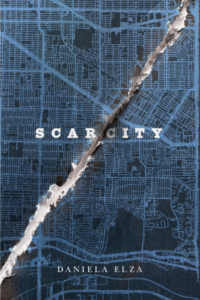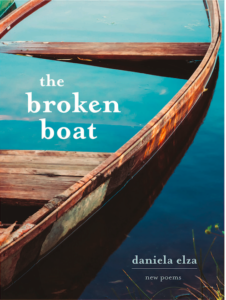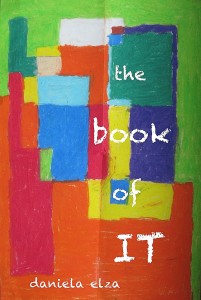what we owe each other
Posted by Daniela Elza on Oct 19 2008
I had the privilege for the first time to attend a live Massey Lecture. It was given by Margaret Atwood at the Chan Center for the Performing Arts at the University of British Columbia. I find Atwood has a comprehensive way of looking and integrating and analyzing that is not just good for reason, but also aesthetically crafted. Yes, integrative. I bought the book, and am looking forward to reading it.
The timely nature of the topic has drawn the attention of a lot more readers from diverse backgrounds. It is encouraging to see a writer’s work given weight so quickly. The circumstances helped, even though they are not happy. Why wait for a crisis to happen so we can start paying attention? So we start to notice the accrued social debt?
“Is brokenness the only place from where we might be lifted?” asks Alison Pick in one of her poems.
“It won’t be until faith and honesty have been restored to the system that things will change,” Atwood says, in the article Margaret Atwood weighs in on the financial crises, in the Vancouver Sun.
The Lecture I listened to was chapter two in the book. Each chapter of the book is one of the five lectures she will be giving live across the country. They will be broadcasted on Ideas on CBC radio between the 10th and the 14th of November.
These old stories carried to us through literature are not so old (and if I am reading Northrop Frye correctly that should include the bible). It feels like we have not learned a thing (which is the sad part). Also sad is that the price to pay for practicing these urges on the large corporate scale of human existence is too big. Same old same old, but the repercussions today are world wide.
I love the way Atwood talked about the banking system as the game we choose to play. It is ficticious, and the only thing that makes it real is our consent to play. Further in the article (linked to above), she says:
“Life is not all about money and in fact money is an imaginary thing we’ve invented, that’s why it’s so volatile,” she said. “What we’re really living off is not money, it’s food and water and air and heat.”
We like to think of economics as a science. But for a while now my husband and I have been regarding the stock market as a branch of psychology. We do not have faith in its erratic volatility. Why add this stress to our lives?
Makes me also think of the elections and how they too are this game we play. A lottery, perhaps? I have friends who did not vote. How come their vote did not count? Can we count those as negative votes? They did not have anyone they wanted to vote for. Can we cast a —1 and a +1? Then do the math. Almost half of the population did not vote, and the reasons could be numerous. Do we not want to find out?
I am ashamed when I look at south of the boarder and see how far one can go to play such games. How the public entrusts the candidates, yet they toy with this trust, and end up betraying it. Trust they are borrowing from the pawnshop of the soul? If they do not intend to repay the trust invested in them, then they are trading in what? Debt? Sin? Those empty envelopes in the subprime mortgage disaster?
The title of the lecture came from the tracing back of the roots of the word debt to where it was equated with sin.
When people do not vote, they have lost the trust in this game. It is a sad state of affairs when we consider that people lost their lives fighting to win us the right to vote, so we can have this luxury today.
But how to play this sometimes crazy no rules game. For instance, I do not know how McCain and Palin cannot be disqualified under some hate crime act. I do not know how they cannot be shut down on the basis that they are simply lying. What honest man (or woman) of integrity will not feel sickened by this display of ignorance and treachery? I am not even going to mention the fact that there should be some kind of responsibility taken for the lies that brought the bombs on Iraq. Many people want out of that game. many people feel lied to and betrayed.
What happened to vision, to honesty, and integrity as crucial parts of a ruling person’s character? Yes, at the risk of being naive. It is a game. And we are the ones playing. And if we do not play by rules we make, someone else will be always there willing to do it for us. Not necessarily to our benefit.
So there, I have been thinking about this lie, and cheat, and bully your way out attitude. We have a zero bullying policy in schools. Should we tolerate this bullying on TV? In politics? Really, what are our kids going to think? I am sure, these patterns repeat themselves in all spheres of human existence. Unless honesty and faith are restored as desirable virtues (no, wait, as necessary virtues), as requirements of any instiution or individual, I cannot imagine how we will ever teach a new generation such values.





